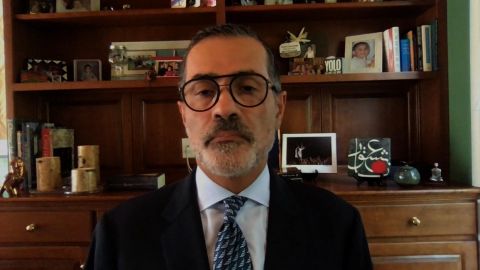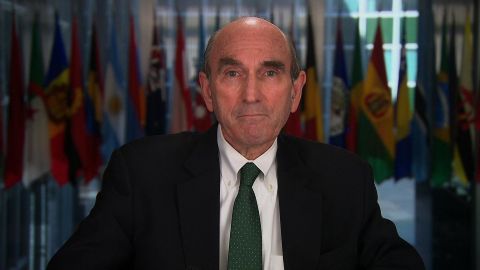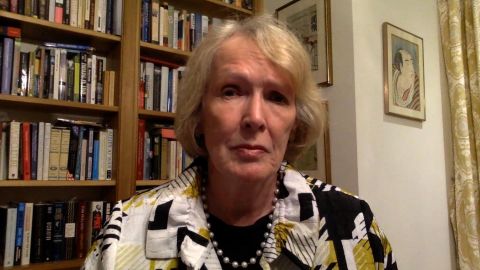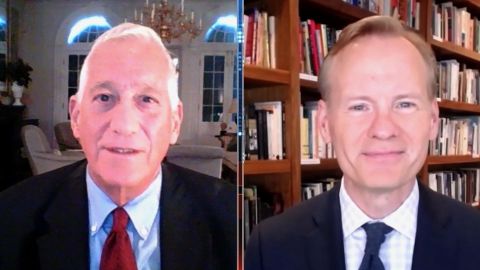Read Transcript EXPAND
CHRISTIANE AMANPOUR: There was all sorts of worry or thought that maybe there might be some so-called October surprise around, you know, some kind of action in the Persian Gulf or elsewhere. But a lot of intel is saying that Iran is basically keeping its powder dry, that the chief supreme leader is telling his people, do not do anything provocative. We don’t want to get into any fight before the election. Is that what you hear? Is that an accurate reading of what’s happening inside Iran? And if so, why?
VALI NASR, PROFESSOR OF MIDDLE EAST STUDIES AND INTERNATIONAL AFFAIRS, IS INTERVIEWED ABOUT TRUMP: Well, I think it is accurate and I think this administration has gone out of its way to provoke Iran into some kind of action. And Iranians have so far decided that it’s not to their advantage to go to war and they don’t want to do anything that would help Trump. I think that’s the biggest reason why they are adopting a wait and see attitude is that they think that if October surprise benefits President Trump, then they don’t want to play that game if they can help it. And in addition, I think they’re watching very carefully to see whether there’s going to be a change of administration, after all the Democratic Party has said that it wants to deescalate tensions in the Middle East, that it wants to go back into the nuclear deal and that it may not follow the same kind of strategies that this administration has done. So, it’s a logical for the Iranians to try to survive until January 20th and see that whether there is a path with the United States at that point. Any kind of military confrontation with Iran at this point — with the United States at this point would make that outcome less likely. And so, I think the Iranians are following a very clear strategy of what they call patience.
AMANPOUR: So, you know, Elliott Abrams listed the amount of pain that is being inflicted on Iran, it’s absolutely correct. I mean, the reality is in the tank, you know, people are finding it really, really difficult, medical supplies haven’t been forthcoming amidst this pandemic, there’s a massive number of infections and deaths there, probably mismanagement as well. But nonetheless, it is hurting. But as I mentioned, the foreign minister said, if you think it’s going to bring it — bring us to our knees, it is not. So, what should the next administration do in order to get Iran back more or less to where it would like to see, America would like to see Iran in terms of international behavior and all the issues that it says it wants Iran to change?
NASR: Well, I mean, partly with this administration, the very — one of the problems is not just the sanction, it has been also it’s very caustic and very insulting tone in which it speaks about Iran and its leaders, it’s very difficult to get around the table with people whom you name call and call liars and things of that sorts. So, a change of language under a new administration will be important.
About This Episode EXPAND
Christiane speaks with Elliott Abrams and Vali Nasr about national security. She also speaks with historian Margaret MacMillan about what this moment will mean in the future. Walter Isaacson speaks with John Dickerson about whether or not we expect too much of U.S. presidents.
LEARN MORE



